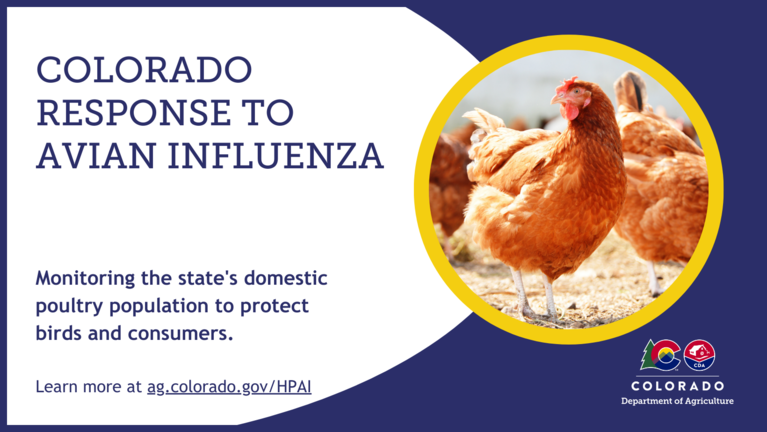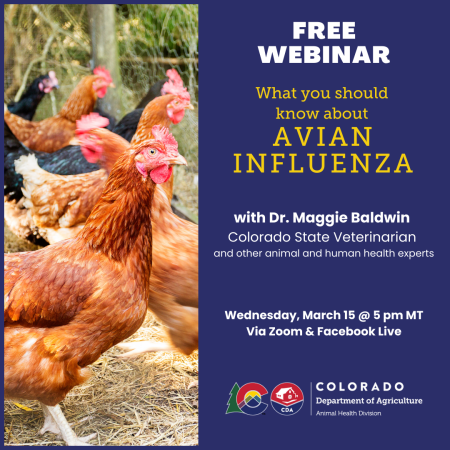Join Dr. Maggie Baldwin, Colorado State Veterinarian, as well as experts from the Colorado Parks and Wildlife (CPW) and Colorado State University to learn more about avian influenza and how to help prevent the spread of the virus.
Backyard poultry owners, waterfowl hunters, and any Coloradans wanting to learn more are encouraged to join this presentation and discussion to hear from state experts about Colorado’s response to the Highly Pathogenic Avian Influenza (HPAI) virus.
HPAI mostly affects waterfowl and shorebirds, sometimes without presenting any symptoms, but can be deadly for domestic poultry flocks. The 2022/23 outbreak has been the worst in Colorado and U.S. history, with more than 58 million domestic birds impacted. Coloradans can take precautions to protect their birds from the virus by increasing biosecurity practices (more on biosecurity below).

